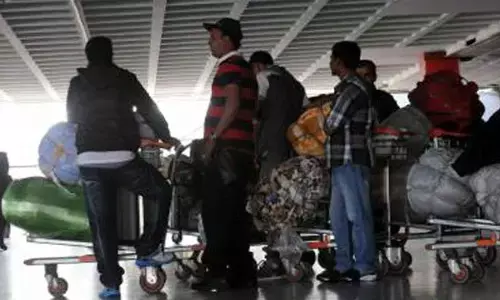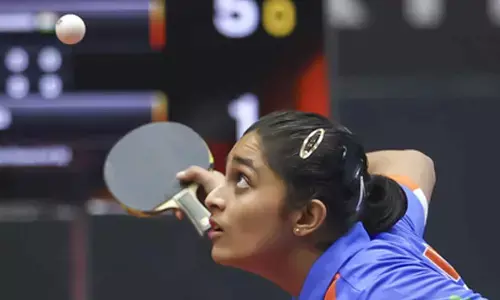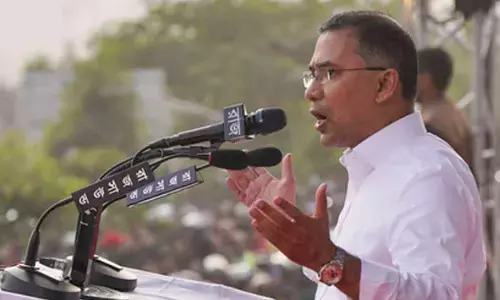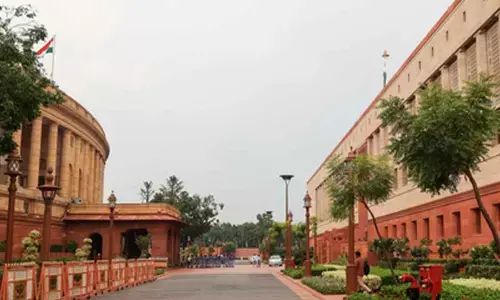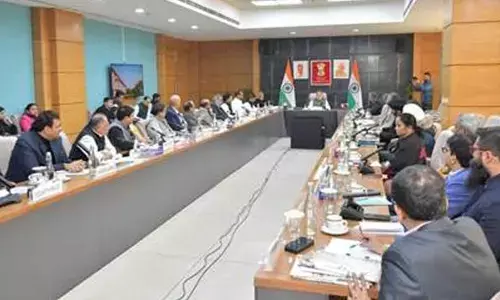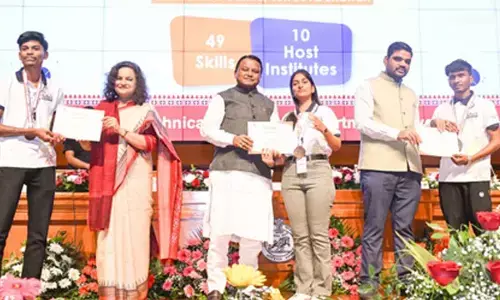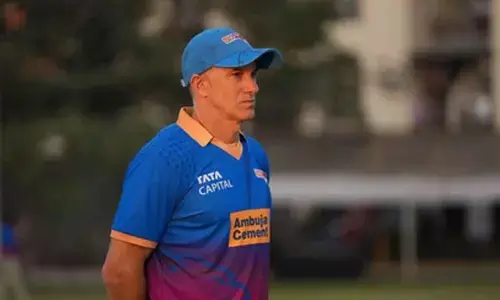Indian education: From light to darkness
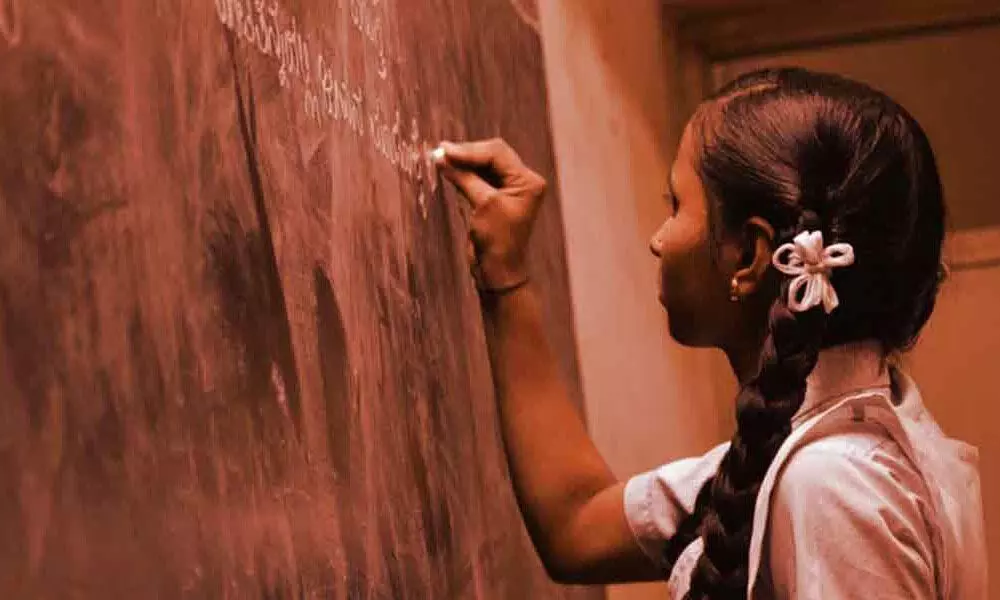
Indian education: From light to darkness
Despite having a well-planned and enlightening curriculum and a comprehensive education system till high school, only a fortunate few can attain proper education as the ever-increasing poverty deprive a huge majority of proper pedagogy in the country
Despite having a well-planned and enlightening curriculum and a comprehensive education system till high school, only a fortunate few can attain proper education as the ever-increasing poverty deprive a huge majority of proper pedagogy in the country. Though education is supposed to be free and compulsory until the age of 14, the fact that rules rest in rulebooks is everybody's knowledge.
Though the few educated liberals and urban intelligentsia raise a hue and cry over the crumbling democracy in the country and the cumulative dominance of fanatic forces in the corridors of power, nothing seems to change the fate of star-crossed millions who live in the backwoods in utter misery and abject discrimination.
It is against this backdrop, the present dispensation is trying to wipe out history and progressive lessons from the curriculum, in its evil design to flourish on illiteracy and ignorance of the masses.
In a ridiculous development, a popular WhatsApp video that is still in circulation points fingers at the minority communities of India for the country's rapid growth in population. The video condemns the minorities who are assumed to wage a religious war to have the majority of their kind in the country. Though some experts tried to debunk this message by presenting some facts and statistics, how far it helped to reach the people no one knows. This could have also perhaps been answered by a student from the ninth grade who learnt a chapter on 'Population' in the subject of Social Science. The chapter puts forth questions like, "How has the population grown and changed through time?" A prominent leader of the ruling party and a powerful Minister in the Union Cabinet is rumoured to have instructed the party's IT cell to use WhatsApp extensively to spread disinformation, or fake news, to create a good perception about the party's 'good intentions', due to its large presence on this social media platform. With rampant fake news spreading across the country through social media, it is rather important for students, the future leaders, to become a force against fake news which could be through accessing authentic information through school textbooks.
However, recently, the CBSE notified the reduction of up to 30% of the curriculum for Grades 9 to 12, due to the prevailing pandemic situation, which forced the authorities to reduce the number of working days considerably. While it is an attentive and an appreciative move to reduce the curriculum, what chapters have been slashed, is a cause of concern. Along with the chapter on 'Population' from Grade 9 Social Science book, other chapters such as 'Democratic Rights' (Grade 9), 'Democracy and Diversity' (Grade 10), and 'Gender, Religion and Caste' (Grade 10), among others, were deleted.
'Democratic Rights' is an essential chapter for students because more often than not, unawareness about people's own rights is the reason why there are so many oppressed people in the country. The six fundamental rights guaranteed by our Constitution are – Right to Equality, Right to Freedom, Right against Exploitation, Right to Freedom of Religion, Cultural & Educational Rights, and Right to Constitutional Remedies. As you may now guess, there is a need for more people to be aware of their fundamental rights, to say the least. To get to the root of why we have oppressed Dalits, tribes, and religious and other minorities in India, the answer would be the failure of citizens in assertion of these rights and failure of the government to upkeep the right to constitutional remedies. Thus, the awareness of rights is essential to forfeit oppression. If the political leaders of the country want a senile population that would listen to every whim of theirs, then the way to do that would be to either take away the citizens' rights or to make the future generation unaware of their rights. Removal of chapters that create awareness and other similar ones increases the possibility of the latter taking place.
It is worrisome to comprehend that chapters on 'Democracy and Diversity' and 'Gender, Religion and Caste' were completely removed. India is a country that is divided across religion and caste? It is almost as if we have forgotten to appreciate our diversity. We see lynching, caste atrocities, and gender discrimination happening around us on a regular basis. Our national capital – Delhi – is also not free of communal riots. What if there was no discrimination based on gender, caste, or religion in our country? What if we stood by the Right to Equality, that is imbibed in our constitution? What if we created a safe space for people to live in solidarity? These chapters included in the curriculum could act as a remedy to these challenges. It is rather important to re-learn how to appreciate people from diverse backgrounds and co-exist. Awareness about pressing issues is the first step toward solving problems, without which, we question the expectations of how the future generation would solve socio-economic problems.
Along similar lines, chapters on Federalism, Nationalism, Secularism, and Citizenship have been completely scrapped from the subject of Political Theory for Grade 11. With increasing discourses on bringing the right essence of nationalism and protecting secularism and citizenship in our country, especially after the extreme and essential debates on CAA-NRC-NPR that began in 2019, the scrapping of these chapters, even as a one-time measure for now, almost seem to act strategically to mum further discourses about the regressive actions of the government. When we look at History syllabus for class 12, partial or complete deletion of chapters happened in History Part-II (Medieval India) and Part-III (Modern India), while Part-I (Ancient India) saw zero deletion either partial or complete. It is perturbing that even chapters such as partition and the J&K separatist politics which one might consider to be very important when children learn history have seen the axe of CBSE.
With the pandemic ravaging the country in this unprecedented situation, the schools have closed for a long time, and rightfully so, resulting in the loss of valuable time which could have been utilised to slowly and steadily to work through the curriculum, while adapting to the virtual education mode which urban India has the privilege of. Instead of the Education Board outrightly eliminating complete topics from the curriculum, prioritised portions should have been included. Alternatively, the board could prescribe a reading list, documentaries or videos even – for the ease of viewing online and on televisions – to cover the important topics while exploring new methods of learning. If the interests of students who wish to take the common national exams is to be highlighted, this would also be handy for them in the future, without causing bias between batches. With the three-way intertwining of the pandemic with the access to education and the political economy of education, the winner of this demolition derby will sure implement his wicked machinations hands down.








